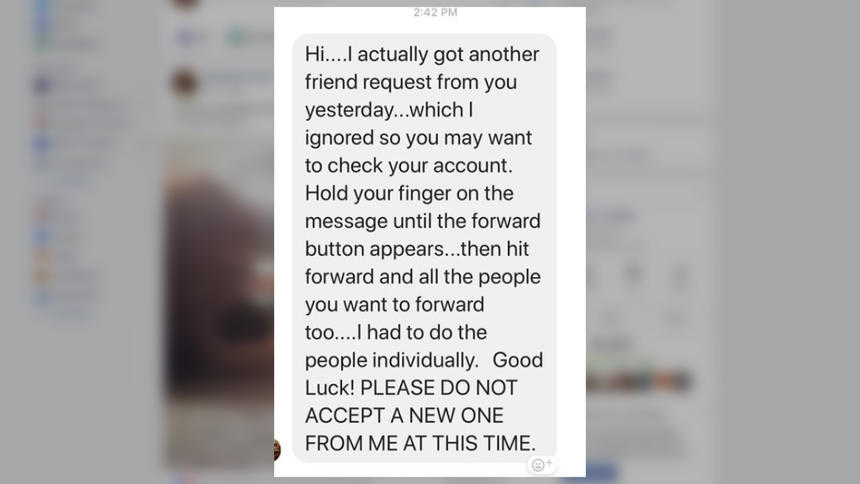
SCARS Institute’s Encyclopedia of Scams™ Published Continuously for 25 Years

You Say You Can't Be Scammed Again?
Most Victims Can Be!
For decades, since 1991, we have been warning about scams of one nature or another, but what most scams have in common is Social Engineering!
For most of you who have been scammed you sware it will never happen again, right? Just being a victim of a scam is not enough to prevent it from happening again.
According to SCARS Analytics: the average number of times a victim will be scammed is 3.4 times!
Of course, many (most?) are one and done, but some are scammed a dozen or more times to create that average! We have known many who were scammed 20 to 30 times!
It Takes More Than Wishful Thinking, It Takes Change!
It takes more than wishful thinking to stop yourself from being scammed. After all, it was wishful thinking (magical thinking) that got you scammed in the first place.
At the heart of almost all scams is Social Engineering – using the way you are wired to defeat you – over and over again.
It Starts With Learning – Have You Been Learning Or Reacting?
We appreciate that many people have no clue how things really work on the web. Just like a teen has no clue how to safely drive a car and not kill themselves – UNTIL they learn.
The Tragedy Is That Most People Do Not Learn To Use The Internet Effectively & Safely
Nobody told you there were scammers, right?
You were ignorant of the real dangers. This was caused by a combination of impulsiveness, inattention, a lack of interest, and an unawareness of how dangerous it can be.
Consider how this applies to something as simple as unsubscribing to an email that you signed up for. Most people have no idea that this is all automated, and that even if we wanted to, you control your own subscriptions (this is required by law & regulations now). When you get an email there is an Unsubscribe link required by law. All it usually takes is to click it! Yet most people send emails demanding removal.
We mention this because this is also how you were scammed!
You probably didn't see what was right in front of you.
Instead, you reacted impulsively.
This Is Also Why MOST Victims Are Scammed Again!
For example, there is a typical Facebook social engineering scam that says people are getting friend requests from you. Except if you really look, it is just a viral scam being shared forever by people not bothering to check what it actually means.
This Is A Perfect Example Of How You Are Still Being Manipulated
In this case, a bogus warning is claiming a duplicate friend request was received. The message also asks users to send this message to all of their friends.
You should never automatically send or SHARE these kinds of viral messages – ever!
If one of your friends had their profile CLONED and you see it, then the first thing is to report it to Facebook (or Instagram, whichever the case) as someone impersonating your friend. Then notify your friends and contacts. But if it is just some message or post that you saw, then why would you forward it along?
Cloning
Cloning is when a person's profile is copied, as happens all the time in romance scams. Scammers clone real people's profiles to impersonate them. Check out this post to learn what you need to know about profile cloning scams and how to protect yourself from them – click here »
What Is The Point?
The point to this is that scam victims are scammed again and again. Every time they respond to a social engineer hoax or fake message you are falling into another scam.
The message above is just one example of a hoax that has gone viral, nothing more than junk chain mail.
Except it is not.
IT IS A CAREFULLY CREATED SOCIAL ENGINEERING SCAM!
It is not asking for money, but it is taking your time and causing you to react. It doesn't seem dangerous, but the next one could very well be very dangerous, delivering malware.
It is also doing something more – it is identifying YOU as someone that can be scammed. When posts are shared from dangerous sources the people who posted them can many times see who shared them. Now they know about you!
"I know people have actually been a victim of it, but this latest one just seems especially pointless, just getting people to copy and paste a message and spam it out to all their contacts," said one user. Even Homeland Security says if you see it just ignore it. Sending it to friends only makes it worse.
The Real Point We Are Making
But here is the real point, if you fell for this, you fell for yet another scam.
Scammers gear their weapons to take advantage of your weakness and vulnerabilities. And this kind of thing will trip you up time after time until you stop reacting impulsively and start developing habits (behaviors) that keep you safe.
Thinking you can never be scammed again is nothing but a belief that will not save you from future scams. Only changing your behavior will save you!
More Nonsense
Here is another urban legend spreading that accepting a friend request gives a hacker access to your account!
According To SNOPES.com – it is totally bogus, but you don't know because you never learned to use your online tools properly, and instead, you are still reacting.
The scam / hoax is:
Social Media Hacker Warning: Accepting a Facebook friend request from a stranger will provide hackers with access to your computer and online accounts.
Wrong, it does not present any such risk!
The examples are multiple variants of a long-running hoax, one which warns the readers not to allow contact with a particular person or group because dire consequences will result. The basic form of these hoax warnings are typically drawn from the following template:
Do not an sent by !
If you do, will be in danger of falling victim to a .Really?
These are but two of the countless socially engineering scams (and that IS the right word) that are constantly running around out there on social media.
Viral Messages May Be Scammer Lures
Have you ever considered that some of them may actually be lures to find more victims?
Meaning that they are like land mines, they wait for people to fall for them, and then they find you by seeing who they caught! Once they identify a target then they spring other scams on you until one of the hooks takes hold!
What Are We Trying To Say?
We are telling you that all of your wishful thinking and protestations about how you are never going to be scammed again are worth nothing UNLESS you back it up with actions.
What Actions?
- Constant learning about how the Internet / Facebook / and Apps work
- Restraint instead of Reaction – take time to examine what you see – wait before responding and ask a friend to be sure
- Thought – think it through – just assume everything is questionable until you make sure and verify
- Trust no one – even though this can slow your recovery as a scam victim, it is safer, and right now safety matters most
- Report what you find so others can help with spreading the word – if you lost money again, report it to law enforcement
In Conclusion
As the United States Department of Homeland Security suggests: STOP | THINK | CONNECT – meaning that when you see something your first instinct is to react; but instead stop, think about it, then if you are sure it is safe to connect!
-/ 30 /-
What do you think about this?
Please share your thoughts in a comment below!
Table of Contents
- Understanding That Change Is Needed To Be Really Safe
- You Say You Can't Be Scammed Again?
- Most Victims Can Be!
- It Takes More Than Wishful Thinking, It Takes Change!
- It Starts With Learning – Have You Been Learning Or Reacting?
- The Tragedy Is That Most People Do Not Learn To Use The Internet Effectively & Safely
- This Is Also Why MOST Victims Are Scammed Again!
- Cloning
- What Is The Point?
- The Real Point We Are Making
- More Nonsense
- Viral Messages May Be Scammer Lures
- What Are We Trying To Say?
- In Conclusion
LEAVE A COMMENT?
Thank you for your comment. You may receive an email to follow up. We never share your data with marketers.
Recent Comments
On Other Articles
- on Love Bombing And How Romance Scam Victims Are Forced To Feel: “I was love bombed to the point that I would do just about anything for the scammer(s). I was told…” Feb 11, 14:24
- on Dani Daniels (Kira Lee Orsag): Another Scammer’s Favorite: “You provide a valuable service! I wish more people knew about it!” Feb 10, 15:05
- on Danielle Delaunay/Danielle Genevieve – Stolen Identity/Stolen Photos – Impersonation Victim UPDATED 2024: “We highly recommend that you simply turn away form the scam and scammers, and focus on the development of a…” Feb 4, 19:47
- on The Art Of Deception: The Fundamental Principals Of Successful Deceptions – 2024: “I experienced many of the deceptive tactics that romance scammers use. I was told various stories of hardship and why…” Feb 4, 15:27
- on Danielle Delaunay/Danielle Genevieve – Stolen Identity/Stolen Photos – Impersonation Victim UPDATED 2024: “Yes, I’m in that exact situation also. “Danielle” has seriously scammed me for 3 years now. “She” (he) doesn’t know…” Feb 4, 14:58
- on An Essay on Justice and Money Recovery – 2026: “you are so right I accidentally clicked on online justice I signed an agreement for 12k upfront but cd only…” Feb 3, 08:16
- on The SCARS Institute Top 50 Celebrity Impersonation Scams – 2025: “Quora has had visits from scammers pretending to be Keanu Reeves and Paul McCartney in 2025 and 2026.” Jan 27, 17:45
- on Scam Victims Should Limit Their Exposure To Scam News & Scammer Photos: “I used to look at scammers photos all the time; however, I don’t feel the need to do it anymore.…” Jan 26, 23:19
- on After A Scam, No One Can Tell You How You Will React: “This article was very informative, my scams happened 5 years ago; however, l do remember several of those emotions and/or…” Jan 23, 17:17
- on Situational Awareness and How Trauma Makes Scam Victims Less Safe – 2024: “I need to be more observant and I am practicing situational awareness. I’m saving this article to remind me of…” Jan 21, 22:55
ARTICLE META
Important Information for New Scam Victims
- Please visit www.ScamVictimsSupport.org – a SCARS Website for New Scam Victims & Sextortion Victims
- Enroll in FREE SCARS Scam Survivor’s School now at www.SCARSeducation.org
- Please visit www.ScamPsychology.org – to more fully understand the psychological concepts involved in scams and scam victim recovery
If you are looking for local trauma counselors please visit counseling.AgainstScams.org or join SCARS for our counseling/therapy benefit: membership.AgainstScams.org
If you need to speak with someone now, you can dial 988 or find phone numbers for crisis hotlines all around the world here: www.opencounseling.com/suicide-hotlines
A Note About Labeling!
We often use the term ‘scam victim’ in our articles, but this is a convenience to help those searching for information in search engines like Google. It is just a convenience and has no deeper meaning. If you have come through such an experience, YOU are a Survivor! It was not your fault. You are not alone! Axios!
A Question of Trust
At the SCARS Institute, we invite you to do your own research on the topics we speak about and publish, Our team investigates the subject being discussed, especially when it comes to understanding the scam victims-survivors experience. You can do Google searches but in many cases, you will have to wade through scientific papers and studies. However, remember that biases and perspectives matter and influence the outcome. Regardless, we encourage you to explore these topics as thoroughly as you can for your own awareness.
Statement About Victim Blaming
SCARS Institute articles examine different aspects of the scam victim experience, as well as those who may have been secondary victims. This work focuses on understanding victimization through the science of victimology, including common psychological and behavioral responses. The purpose is to help victims and survivors understand why these crimes occurred, reduce shame and self-blame, strengthen recovery programs and victim opportunities, and lower the risk of future victimization.
At times, these discussions may sound uncomfortable, overwhelming, or may be mistaken for blame. They are not. Scam victims are never blamed. Our goal is to explain the mechanisms of deception and the human responses that scammers exploit, and the processes that occur after the scam ends, so victims can better understand what happened to them and why it felt convincing at the time, and what the path looks like going forward.
Articles that address the psychology, neurology, physiology, and other characteristics of scams and the victim experience recognize that all people share cognitive and emotional traits that can be manipulated under the right conditions. These characteristics are not flaws. They are normal human functions that criminals deliberately exploit. Victims typically have little awareness of these mechanisms while a scam is unfolding and a very limited ability to control them. Awareness often comes only after the harm has occurred.
By explaining these processes, these articles help victims make sense of their experiences, understand common post-scam reactions, and identify ways to protect themselves moving forward. This knowledge supports recovery by replacing confusion and self-blame with clarity, context, and self-compassion.
Additional educational material on these topics is available at ScamPsychology.org – ScamsNOW.com and other SCARS Institute websites.
Psychology Disclaimer:
All articles about psychology and the human brain on this website are for information & education only
The information provided in this article is intended for educational and self-help purposes only and should not be construed as a substitute for professional therapy or counseling.
While any self-help techniques outlined herein may be beneficial for scam victims seeking to recover from their experience and move towards recovery, it is important to consult with a qualified mental health professional before initiating any course of action. Each individual’s experience and needs are unique, and what works for one person may not be suitable for another.
Additionally, any approach may not be appropriate for individuals with certain pre-existing mental health conditions or trauma histories. It is advisable to seek guidance from a licensed therapist or counselor who can provide personalized support, guidance, and treatment tailored to your specific needs.
If you are experiencing significant distress or emotional difficulties related to a scam or other traumatic event, please consult your doctor or mental health provider for appropriate care and support.
Also read our SCARS Institute Statement about Professional Care for Scam Victims – click here to go to our ScamsNOW.com website.

















how do i check a woman on hangouts to know she is genuine
Don’t bother, she is a fake. Real people would not ask you to go to hangouts.